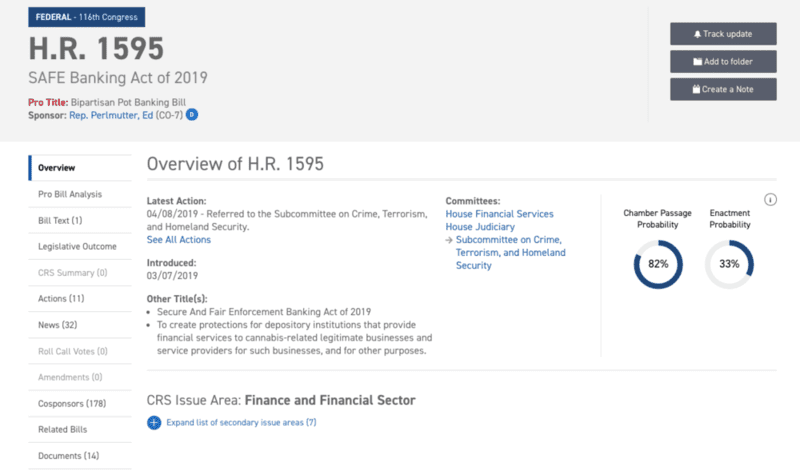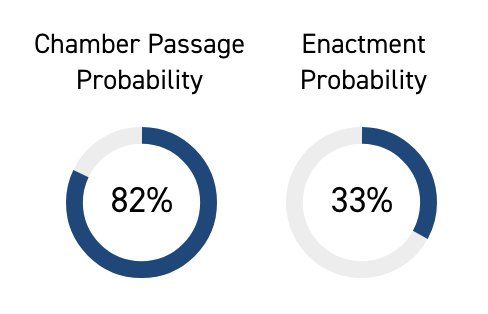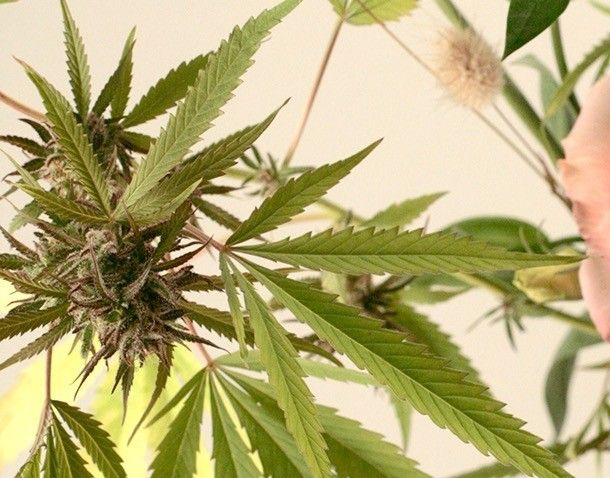I can't even comment on this article....I will get myself a time out for vulgarity, name calling, and basic rage if I try....sigh. But I will say that I am from time to time appalled at the "cure all" touting of MJ in general and CBD in particular. For me, CBD does pretty much nothing for my neuropathic pain...others find it to be otherwise. But I often do think that MJ and MJ product health benefits are being WAY oversold and threaten to undermine the industry's and community's credibility.
Industry trembles after FDA cracks the whip
Powered by a $6.1 billion annual budget and prosecutorial alliance with the Federal Trade Commission (“FTC”), last month the U.S. Food and Drug Administration (“FDA”) simultaneously charged three cannabidiol (“CBD”) companies with violating the Federal Food, Drug, and Cosmetic Act, 21 U.S.C. 301, et seq. (“FDA Act”) and Federal Trade Commission Act, 15 U.S.C. §§ 41-58 (“FTC Act”) by: (1) placing “‘unapproved’ and ‘misbranded’ human drugs and adulterants” and “unapproved and unsafe animal drugs” into interstate commerce; and (2) making false or unsubstantiated health claims.
A wildly popular nutritional supplement and food additive, oil-based hemp derived products like CBD racked up $1.1 billion in 2018 domestic sales and, after the Agriculture Improvement Act of 2018 (“Farm Bill”) removed them from the Controlled Substance Act, 21 U.S.C. §§ 801, Et. Seq (1970) and Drug Enforcement Administration’s (“DEA”) clutches, 2019 hemp production and sales exploded.
With the FDA “locked and loaded”, and billions of annual sales and “deal flow capital” hanging in the balance, the cannabis and hemp industries are questioning whether their products can be manufactured, sold and marketed without vending “adulterated” or “misbranded” food, drugs and cosmetics, or making “false or unsubstantiated” health claims.
Industrial Hemp and CBD
A fast-growing, sustainable, and inexpensively produced plant, “Industrial Hemp” is a variety of Cannabis sativa L. containing less than 0.3% plant chemical delta-9 tetrahydrocannabinol (“THC”). Agricultural Act of 2014, 7 U.S. Code §5940. Unlike Marijuana, which is cultivated to yield psychoactive THC, Industrial Hemp yields more than 25,000 oil and fibrous products embraced by farmers as a hedge against lower-value soy, cotton, and alfalfa crops.
Seventy-eight percent (78%) of all hemp grown in 2018 was for CBD, an oil-based hemp-derived product offering broad health and wellness uses that achieved $641 million in domestic sales according to the Hemp Industry Journal. The U.S.’s largest CBD firms achieved record Q3 2018 revenues including $17.7 million by Charlotte’s Web (maker of products sold in 3,000 U.S. stores and up 57% from prior year); $16.8 million by “hemp and CBD-based products portfolio companies owner” Medical Marijuana Inc. (up 116% over Q3 2017); and $13.6 million by manufacturer CV Sciences (whose Plus CBD oil is sold in 2,000 natural health food stores).
“Animal Feed” is an example of a fibrous hemp-derived product, which, before being sold or distributed, must be deemed “Generally Recognized as Safe” (“GRAS”) by the FDA and/or listed as a “recognized feed ingredient” by the American Association of Feed Control Officials.
Hemp production also skyrocketed in 2018 with 112,000 acres licensed for cultivation, 3,546 cultivation licenses issued, 78,176 total acres cultivated, and 40 universities conducting research.
Farm Bill’s Impact and Rise of the FDA
Beyond removing plant cannabis sativa L. containing no more than 0.3% THC on a dry-weight basis from the Controlled Substances Act and DEA’s purview, the Farm Bill:
- guarantees that hemp and hemp derived products can be imported, exported and transported from state to state like any other crop;
- tasks United States Department of Agriculture (“USDA”) with promulgating hemp regulations “as expeditiously as practicable”; and
- tasks states with submitting hemp-growing regulations plans to the USDA which it may approve or reject within 60 days.
The Farm Bill also removes major hurdles impeding hemp cultivators’ ability to run successful, profitable businesses including accessing insurance and banking, finding adequate harvesting equipment and processors, and moving hemp biomass or finished products between states.
Budgeted at $6.1 billion (a $643.1 million increase from 2019 and over double the DEA’s $2.862 billion budget), the FDA is responsible for protecting and promoting public health through controlling and supervising food safety, tobacco products, dietary supplements, prescription and over-the-counter pharmaceutical drugs, cosmetics, animal foods and feed, and veterinary products.
Pursuant to the FDA Act, the FDA oversees a wide range of food, drugs and cosmetics and, following the hemp plants’ cultivation, has enormous sway over how hemp derived products can be prepared, manufactured and sold. Other than Epidiolex (an FDA-approved severe epilepsy treatment), the FDA deems most CBD products to be “adulterated” or “misbranded” and, following the Farm Bill’s passage, announced plans to review CBD use in food, drugs and cosmetics while maintaining that CBD cannot be used in a food or dietary supplement if listed as “an active ingredient in a drug product” and that the FDA regulates hemp products making medical treatment claim of therapeutic values for humans or animals (including dietary supplements) and is the regulatory body determining what new food type may enter the U.S..
Although it is anticipated that the FDA will create “conditions” for CBD products (including dosage limits and material information labeling requirements) following which, pursuant to the Dietary Supplement Health and Education Act of 1994, it will regulate them as dietary supplements (and opening the CBD market to mass-market retailers), no timeline exists nor does any pressure on the FDA to act.
At odds with the FDA’s position, Colorado passed a law declaring that “food and cosmetics are not adulterated or misbranded by virtue of containing industrial hemp,” including CBD, which the FDA has not challenged. Conversely, states including California and New York maintain that CBD cannot be added to food until the FDA updates its CBD posture (although CBD manufacturers and sellers in those states report only limited rules enforcement).
FDA’s “March Assault”
The game forever changed on March 28, 2019, when, teamed with the FTC, the FDA issued warning letters to three CBD product sellers alleging false, unfounded, unsubstantiated, and egregious health claims about their products’ ability to limit, treat or cure without sufficient evidence or FDA approval and threatening product seizures, injunctions and sales proceeds reimbursement.
The targets – – Advanced Spine and Pain, LLC d/b/a Relievus (a South Jersey and Pennsylvania pain clinic chain), Nutra Pure LLC (a Washington CBDPure brand soft caps and oils manufacturer and seller), and PotNetwork Holdings (a Florida Liquid Gold Gummies manufacturer and seller) – – advertised a range of CBD containing supplements boasting the ability to effectively treat diseases (including cancer, Alzheimer’s and fibromyalgia) and “neuropsychiatric disorders” in both humans and animals.
The warning letter apprises Relievus that its website’s claims establish that Relievus products are drugs under §201(g) of the FDA Act because they are “intended for use in the cure, mitigation, treatment, or prevention of disease” although the products are:
* not generally recognized as safe and effective for these uses and, therefore, rendered “new drugs” under §201(p) of the FDA Act that are barred from being introduced into interstate commerce without prior FDA approval (which is solely provided on the basis of scientific data and information demonstrating that drug is safe and effective);
* misbranded under §502(f)(1) of the FDA Act for failing to bear adequate “intended use(s) directions” defined as “directions under which a layperson can use a drug safely and for the {intended} purposes” or as “prescription drugs” which “can only be used safely at the direction, and under the supervision, of a licensed practitioner”; and
* intended for the treatment of one or more diseases that are not amenable to self-diagnosis or treatment without a licensed practitioner’s supervision” and for which it is “impossible to write adequate directions for a layperson to use your products safely for their intended purposes”.
Relievus’ warning letter also apprises that it is unlawful under the FTC Act “to advertise that a product can prevent, treat, or cure human disease” unless possessing competent and reliable scientific evidence (including well-controlled human clinical studies, substantiating that claims are true at the time of making) and of the FTC’s “concern” that Relievus’ “efficacy claims” are not substantiated by competent and reliable scientific evidence.
The warning letters instruct Relievus, Nutra Pure and PotNetwork to notify the FDA and FTC within 15 days of specific actions taken to address these concerns and threaten legal action including product seizures, injunctions and reimbursement of all sales proceeds.
Impact of FDA’s March Assault
The FDA’s tripartite assault, coupled with its landmark FTC prosecutorial alliance, sent shock waves through both the hemp and legalized Marijuana industries.
First, despite prohibiting food, drugs and cosmetics products deemed to be “adulterated” or “misbranded” or making “false or unsubstantiated” health claims, the FDA provides zero guidance on how to comply either with current FDA regulations or those to be promulgated in compliance with Farm Bill.
Since they are mostly sold over the internet and enter the “stream of interstate commerce”, virtually all CBD product making “health and wellness” claims or deemed a food or drug are subject to the FDA’s wrath. However, “health and wellness applications” and “food and beverage infusion” are what makes CBD and other oil-based hemp derived products attractive to consumers. A multi-billion dollar industry must immediately decide to either cease operations or carefully proceed while assessing “legal versus bottom line” risks mindful that no pressures exist for the FDA to define precisely what is allowable.
Second, although most suspected that bigger players would be targeted first, the FDA bagged more modest prey like Relievus, Nutra Pure and PotNetwork. Although the FDA may have viewed their purported violations as more egregious or subject to more consumer complaints, the FDA’s industry grasp and monitoring scope are wider than anticipated suggesting that no CBD company is capable of flying under the radar.
Third, what does this portend for cannabis? Because it can’t be sold between the states and is presently incapable of entering the stream of interstate commerce, the marijuana industry has been spared the FDA’s scrutiny. However, at some point cannabis will come off Schedule 1 of the Controlled Substance Act, be sold between states and, thus, be regulated by the FDA for medical marijuana’s health and wellness claims and any THC item deemed a food, drug or cosmetic. Stated another way, the Marijuana industry will soon undergo a new and even more pervasive line of regulation.
Fourth, how will FDA’s increasingly aggressive stance affect “deal flow capital”? Although the Farm Bill removed the DEA from regulating hemp, the FDA is larger and better-funded regulator capable of casting a much longer shadow, under no pressure to define its regulatory parameters, and already working in conjunction with the FTC to prosecute perceived wrongdoing. Even the most risk tolerant investor will need to re-assess whether the FDA will derail or delay the enterprise’s profitability.





